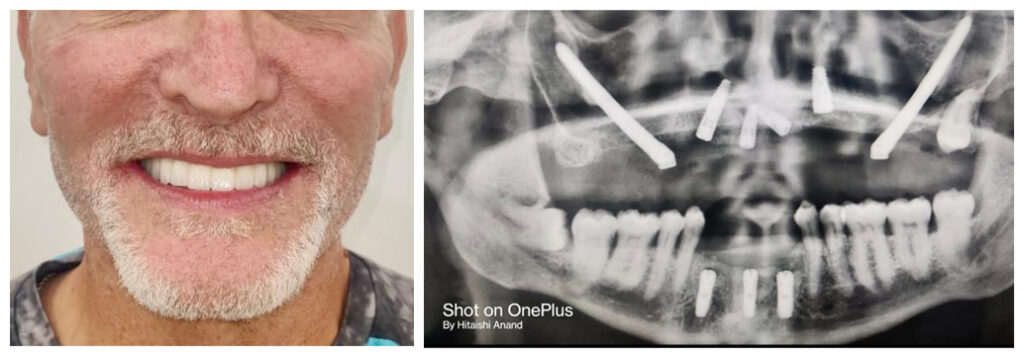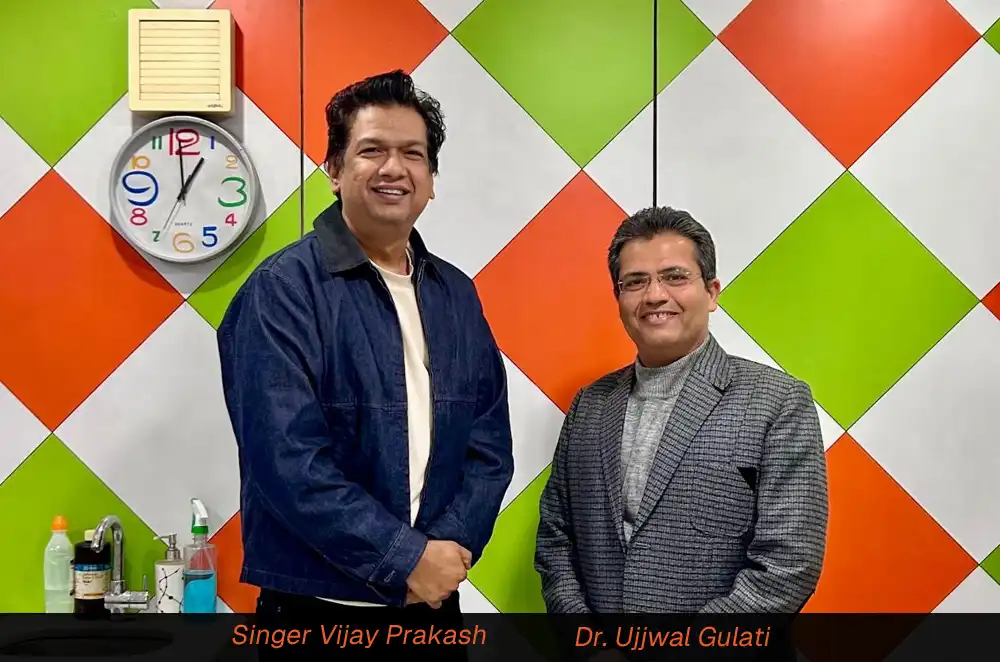Dental implants have become a common treatment modality for placement of fixed teeth in patients’ mouths. However, there are a significant number of patients in whom bone deficiencies in the upper jaw doesn’t permit placement of implants. The other scenario can be major grafting procedures involved before or along with dental implants.

In both these situations zygomatic implants have been a great alternative. Zygomatic implants engage in strong zygomatic bone or cheek bone instead of tooth bone (alveolus). They are used alone or in combination with conventional dental implants.
Table of Contents
What is zygomatic implant?
A zygomatic implant is a type of dental implant used in cases where patients may not have sufficient bone in their upper jaw region to support a conventional dental implant. Unlike conventional dental implants, which are placed directly into the jawbone, zygomatic implants are anchored into the zygomatic bone (cheekbone). This enables them to bypass the need for bone grafting procedures that are typically required to build up the bone in the maxillary region before placing dental implants.
How long do zygomatic implants last?
The durability and longevity of zygomatic implants can vary depending on several factors, including the patient’s oral hygiene practices, overall health, and the quality of the implant itself. Generally, with proper care and regular dental check-ups, zygomatic implants have success rates exceeding 96% -98%.
Pros and cons of zygomatic dental implants
Pros
- Provides stability: Zygomatic implants provide better stability and support for the prosthetic teeth for patients with severe bone loss or weak jawbone structure.
- Eliminates the need for bone grafting: Zygomatic implants can be placed directly into the zygomatic bone. This eliminates the need for time-consuming and costly bone grafting procedures.
- Immediate loading: Zygomatic implants can be immediately loaded with a fixed denture, which means that patients can walk out of the dental office with a complete set of teeth on the same day as the implant surgery. This saves time and reduces the waiting period for dental restorations.
- Improved aesthetics: The use of zygomatic implants allows for the restoration of natural facial contours and improved facial aesthetics. This can significantly enhance a patient’s self-confidence and overall quality of life.
- Longevity: zygomatic bone has less tendency for resorption and is highly dense and strong. This is the reason for zygomatic implants to have success rates in high 90’s.
Cons
- Highly technical procedure: Zygomatic implant placement is a highly technical surgical procedure that requires a high level of expertise and specialized training.
- Higher cost: Zygomatic implants tend to be more expensive than conventional implants due to its special design and specifications.
Indiadens is one of the best dental implants clinics/centers in Delhi, NCR, India to perform Zygomatic implants. Dr Ujjwal Gulati has performed such surgeries on national and international patients who were denied the options of dental implants due to inadequate bone in jaws.

Complications
While complications with zygomatic implants can occur, they are relatively rare when the procedure is performed by experienced and skilled dental professionals. Proper patient selection, comprehensive treatment planning, and thorough post-operative care are crucial in reducing the risk of complications like bleeding, infectiona, implant failure and fractures, ensuring long-term success with zygomatic implants.
Recovery Time
The recovery time for zygomatic dental implants can vary depending on the patient’s overall health, the complexity of the procedure, and any complications that may arise. Generally, the initial healing phase after zygomatic dental implant surgery takes about 5-7 days.Complete osseointegration (the process of the implant fusing with the jawbone) can take up to 3 months. However, zygomatic implants allow for immediate loading or immediate placement of teeth in most of the cases.
Different brands and types of zygomatic dental implant
There are several different brands and types of zygomatic dental implants available on the market. Three of the most commonly used brands include:
- Nobel Biocare – Nobel Zygoma
- Straumann – Straumann Zygomatic implants
- Noris Zygomatic Implant
It is important to note that the choice of brand and type of zygomatic dental implant may vary depending on the specific needs and preferences of the patient. Thus, it is recommended to consult with a dental professional to determine the most suitable option.
Dr Ujjwal Gulati (Oral and Maxillofacial surgeon) chief implant dentist/surgeon at Indiadens is one of the well known specialists of zygomatic implant surgeries. Dr Ujjwal Gulati has treated such patients from India and abroad with promising results.
How much do zygomatic implants cost in India?
The cost of zygomatic dental implants in India can vary depending on various factors such as the experience of the dentist, complexity of the case and materials used. On average the zygomatic implants in India can range from INR 50000-INR 75000. It is recommended to consult with a dental professional or clinic for an accurate cost estimate based on individual requirements.


